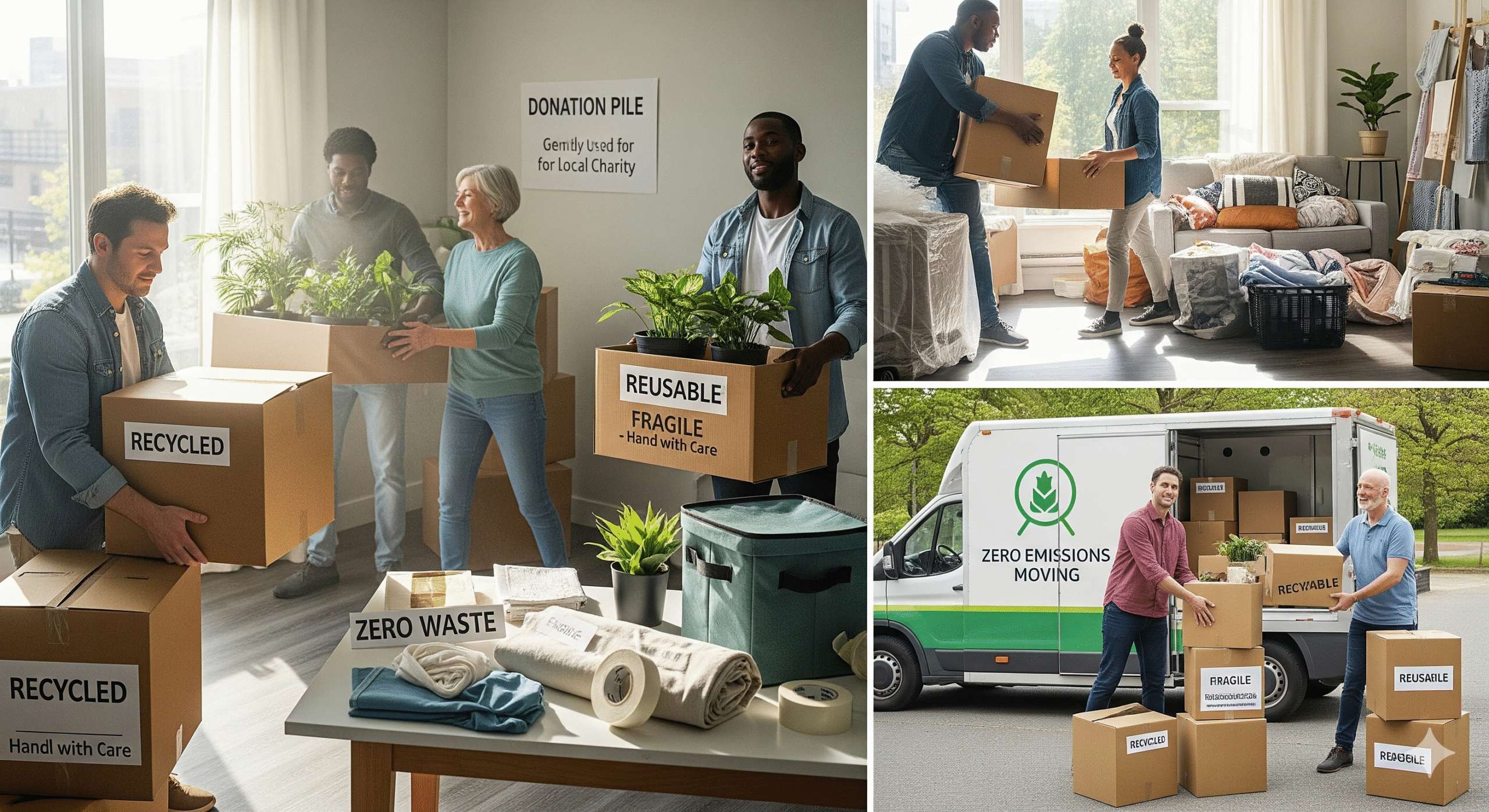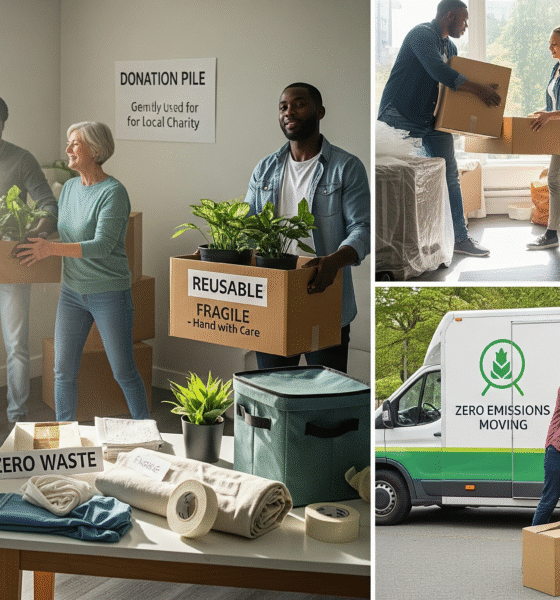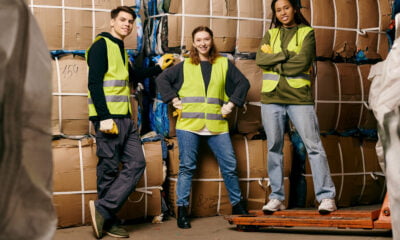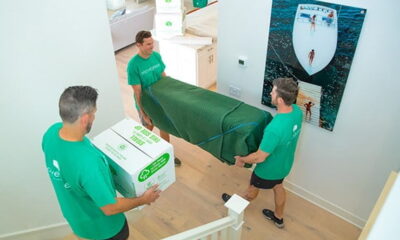

Features
Eco-Friendly Moving: Sustainable Choices for a Greener Tomorrow
Moving homes presents a unique opportunity to embrace sustainable practices that benefit both your family and the environment. While relocating traditionally generates significant waste and consumes substantial resources, conscious planning and eco-friendly alternatives can dramatically reduce your move’s environmental impact. By making thoughtful choices throughout the moving process, you contribute to a healthier planet while often saving money and creating positive habits for your new home.
Sustainable Packing Solutions
The foundation of eco-friendly moving lies in choosing sustainable packing materials. Instead of purchasing new cardboard boxes, explore creative alternatives that reduce waste and costs. Many grocery stores, liquor stores, and retail establishments regularly discard sturdy boxes that work perfectly for moving purposes.
Utilize items you already own as packing materials. Towels, linens, clothing, and blankets provide excellent cushioning for fragile items while eliminating the need for bubble wrap or packing peanuts. This approach reduces waste while ensuring your belongings are protected during transport.
Consider investing in reusable plastic moving boxes that can be rented or purchased. These durable containers stack efficiently, protect belongings better than cardboard, and can be used for storage in your new home or passed along to other families planning moves.
Decluttering with Purpose
Moving provides the perfect opportunity to evaluate your possessions and embrace minimalist principles. Rather than transporting items you no longer need or use, donate functional belongings to local charities, shelters, or community organizations where they can serve others effectively.
Organize donation drives within your neighborhood or workplace to maximize the impact of your decluttering efforts. Many items that seem unnecessary to you might be exactly what someone else needs to improve their living situation.
For items beyond donation suitability, research proper recycling options in your area. Electronics, batteries, paint, and other household chemicals require special disposal methods that prevent environmental contamination.
Transportation Efficiency
Optimize your moving transportation to reduce fuel consumption and emissions. Consolidate belongings efficiently to minimize the number of trips required, and choose appropriately sized vehicles that match your actual needs rather than overestimating space requirements.
If hiring professional movers, select companies that demonstrate environmental responsibility through efficient routing, well-maintained vehicles, and sustainable business practices. Many moving companies from Lees Summit MO residents choose now offer eco-friendly services and use biodiesel trucks or other green technologies to reduce their carbon footprint.
Consider timing your move strategically to avoid peak traffic periods, reducing fuel consumption and emissions while potentially saving money on moving services during off-peak times.
Green Utilities Setup
Coordinate with utility companies to minimize service interruptions and reduce waste associated with multiple trips for installations. Schedule all utility connections for the same day when possible, reducing the number of service vehicles required.
Research green energy options in your new location, including solar programs, wind energy, or other renewable sources that might be available through local utilities. Moving provides an excellent opportunity to upgrade to more sustainable energy choices.
Sustainable Unpacking Practices
Extend your eco-friendly approach into the unpacking process. Save packing materials in good condition for future use or offer them to others planning moves. Many community social media groups have members eager to obtain moving supplies.
Recycle cardboard boxes properly through local programs, and ensure any plastic materials are disposed of according to local recycling guidelines.
Building Long-Term Habits
Use your eco-friendly moving experience as a foundation for ongoing sustainable practices in your new home. Implement recycling systems, composting programs, and energy-efficient habits that continue reducing your environmental impact long after moving day.
Consider joining local environmental groups or sustainability initiatives in your new community, connecting with like-minded neighbors while contributing to regional conservation efforts.
Financial Benefits
Sustainable moving practices often provide significant cost savings alongside environmental benefits. Donated items may qualify for tax deductions, while reused packing materials eliminate purchase costs. Efficient planning reduces transportation expenses and potential storage fees.
These immediate savings can be reinvested in energy-efficient appliances, sustainable home improvements, or other green initiatives that continue providing environmental and financial benefits throughout your residence in your new home.
Eco-friendly moving demonstrates that environmental responsibility and practical efficiency can work together harmoniously.


 Environment12 months ago
Environment12 months agoAre Polymer Banknotes: an Eco-Friendly Trend or a Groundswell?

 Features11 months ago
Features11 months agoEco-Friendly Cryptocurrencies: Sustainable Investment Choices

 Features12 months ago
Features12 months agoEco-Friendly Crypto Traders Must Find the Right Exchange

 Energy11 months ago
Energy11 months agoThe Growing Role of Solar Panels in Ireland’s Energy Future


























